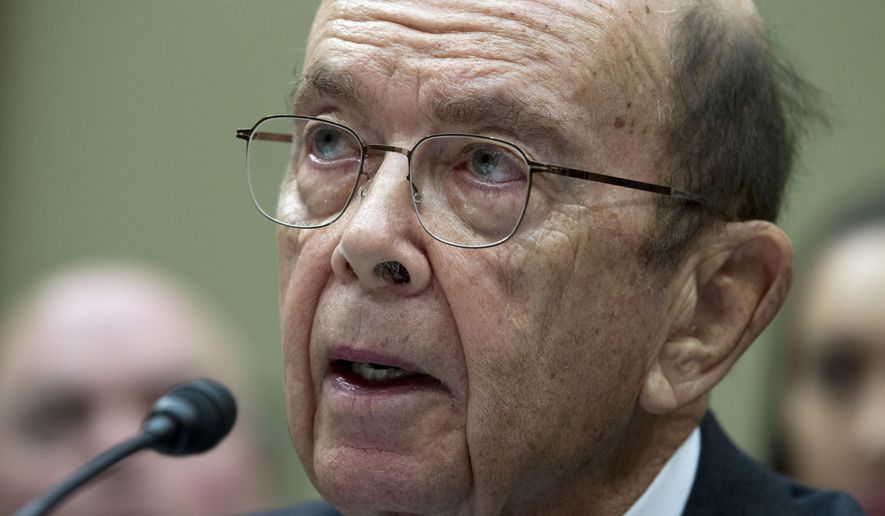The U.S. and China will strike a trade deal eventually, Commerce Secretary Wilbur Ross predicted Tuesday, though said the G-20 summit this month is “not a place where anyone makes a definitive deal.”
President Trump wants to make progress on an elusive agreement with Chinese President Xi Jinping on the sidelines of the global summit in Osaka, Japan, at the end of June.
Mr. Ross said the leaders will try to move the ball, but won’t seal a pact in that setting.
“The trade deal is gonna be thousands of pages,” Mr. Ross told CNBC’s “Squawk Box.” “At the G-20, at most, it will be a 40,000-foot level, some sort of agreement on a path forward — it’s certainly not going to be a definitive agreement.”
Mr. Trump says the U.S. has the upper hand in the escalating trade war, saying he can bring the Chinese to their knees by imposing tariffs on up to $300 billion in goods in addition to the 25 percent levy he already imposed on $200 billion in imports.
He said the duties will force companies to move operations out of China, benefiting the U.S.
“They’re coming here, because they don’t want to pay the tariff, and they’re going to other countries,” Mr. Trump told White House reporters Tuesday. “China would like to make a deal very badly. They’re getting hurt very badly by the tariffs.”
Mr. Trump said he still expects to meet with Mr. Xi in Japan, citing their strong relationship, even though China hasn’t confirmed the tete-a-tete.
In the meantime, tit-for-tat tariffs and crossfire over 5G technologies and “rare earth minerals” have rattled the markets and left global finance gurus worried about ripple effects from the trade battle.
Mr. Ross urged patience, saying the people got “hysterical” over Mr. Trump’s threat to levy 5% tariffs on Mexico, only to see the White House secure a deal.
“Even shooting wars end in negotiation. I think eventually this will end in negotiation,” Mr. Ross said. “The markets get a little too jumpy, and a little too trigger-happy.”
“Judge this administration by results,” he added. “Don’t judge it by interim soundbites.”
Still, the task before the administration is a tall one.
Mr. Ross said any trade deal with China must establish fair terms on the sale of things such as soybeans, liquefied natural gas and planes, while settling issues around intellectual property rights, the forced transfer of technology to China and “all of the abuses that we’ve been talking about.”
It also has to include mechanisms for enforcing the deal if there are violations.
“We’re going to either do a great deal with China, or we’re not doing a deal at all,” Mr. Trump said.
• Tom Howell Jr. can be reached at thowell@washingtontimes.com.




Please read our comment policy before commenting.